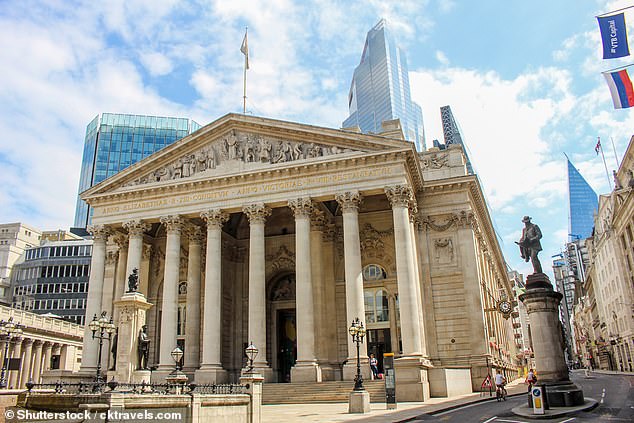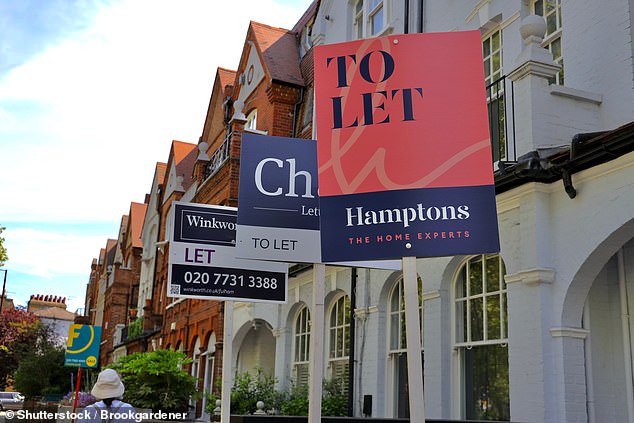For those looking to buy or sell property, news of the July 4 general election may, at first glance, seem to throw your plans into chaos.
Elections often cause some stagnation in market activity, as buyers and sellers put their plans on hold until they know what housing policies the new Government will introduce.
They also tend to be followed by a “market rebound” in which pent-up demand is released and everyone who had previously been held at bay springs into action.
However, like the surprise election date announcement, will the housing market respond in a more unusual way this time?
Effects: Elections often cause some stagnation in market activity as buyers and sellers suspend their plans to move.
Some experts suggest that there are factors that can have a much greater influence on buyers and sellers, and the decisions they make; for example, the pace and scale of interest rate cuts.
An interest rate cut expected in the summer may prompt buyers to take action rather than wait for the election outcome.
We asked some of the leading experts in the real estate market for their opinion on the impact this election announcement will have on buyers and sellers.
Zoopla’s Richard Donnell suggested it may well depend on how far along you are in the buying or selling process.
And there is also the question of personal circumstances and how motivated buyers and sellers currently are.
For example, you could be a first-time buyer who wants to stop paying record-breaking rents.

Experts suggest that the election will not have as big an impact on the housing market as in previous years.
Mr Donnell said: “The announcement of the July 4 general election came sooner than expected.” Elections typically cause some stagnation in market activity.
‘This general election period will extend into early summer, when market activity tends to slow down.
‘The housing market has been recovering with increasing sales volumes and more homes coming onto the market for sale, a sign of growing confidence among sellers despite mortgage rates remaining between 4.5 and 5 percent. .
‘There are 392,000 homes in the pipeline for sale being completed in 2024. This is 3 per cent more than this time last year and we don’t expect buyers already in the process of working towards sales to pull out.
“The push to move continues for many households, particularly first-time buyers escaping rapid rental growth in the private rental sector and those who moved last year as mortgage rates rose.”
Delay decisions
However, Donnell said the election announcement could slow down the sales process for some.
‘The election announcement is likely to slow the pace at which new sales are agreed in the coming weeks, as we approach the start of the summer slowdown. “Most buyers who are already in the home-buying process and are close to agreeing to a sale will ideally want to move forward and agree to the sale now,” he said.
Overall, we don’t think the elections will have as big an impact as in previous years.
‘Those at an earlier stage in the process may try to delay decisions until the fall after the election is over.
“Overall, we don’t see the elections having as big an impact as in previous years, particularly because there is no big divide on policies between the two main parties and with few specifics on housing, other than a focus on housing reform. private rental sector”. sector and boost housing supply.
‘However, sales completed during 2024 may now fall slightly short of the 1.1 million we expected for 2024.
“What businesses and landlords will want to see from all political parties are concrete plans for how we can increase housing supply across all tenure types while achieving the right reforms in the private rented sector to ensure we maintain the offer and at the same time we give tenants more protection.

Factors such as the pace and scale of interest rate cuts by the Bank of England are likely to have a greater impact on the property market.
Meanwhile, Kate Eales, of estate agency Strutt & Parker, suggested the election call may bring a sigh of relief.
She said: ‘The news that the general election is just six weeks away should be greeted by the market with a sigh of relief rather than a cry of panic.
The news that the general election is just six weeks away should be greeted by the market with a sigh of relief rather than a cry of panic.
‘The small warning window gives little time for uncertainty or nervousness to build, and is good news for people who want to sell quickly, especially if they have deadlines to meet, such as the school term in September or a new job.
“Those who have been betting on a ‘wait and see’ attitude can now proceed with confidence as, regardless of the outcome of the election, the rest of the year will bring an active market driven by those who have remained seated and a more economic economy buoyant.
“Positive inflation numbers and mortgage lenders pricing in anticipated falls in interest rates have already led to a more active market in recent weeks, with renewed motivation and confidence from both buyers and sellers.”
Post-election rebound
And Rightmove’s Tim Bannister agreed that the summer election is likely to have less impact than if it had been called in the autumn.
He said: ‘A look back at recent elections shows that house prices and activity generally remain stable in the run-up to the event, and then we often see a post-election rebound.
“On average, it is taking us more than seven months to move forward and we are still seeing last year’s pent-up demand flow into 2024.
“This means that, for many, the desire to go ahead with the move is likely to outweigh the wait to see what new policies the Government might implement.
‘An election in the summer, when the market is traditionally slower, could have less impact on property market activity than if it had been called in the autumn.
‘So, as we get closer to this election, the housing market is likely to remain active and activity will increase once the election is over and things become clearer.
“It could mean we’re setting ourselves up for a stronger-than-usual August, especially if we see interest rates finally start to fall.”

According to experts, an election in the summer, when the market is traditionally slower, could have less impact on real estate market activity than if they had been called in the fall.
Meanwhile, Lucian Cook of estate agency Savills suggested that issues such as affordability and interest rate cuts are much more likely to have a big impact on the market.
He said: ‘Affordability is by far the most important factor in the mainstream property market.
‘Consequently, we expect the pace and scale of interest rate cuts to have a more significant impact on the market than the timing or outcome of the general election, particularly given the slim likelihood of a change of government. .
‘The fall in headline inflation to 2.3 per cent in the year to April indicates two or three bank base rate cuts this year.
‘This is likely to mean mortgage markets remain relatively stable in the short term, with the prospect of lower borrowing costs as the year progresses.
Perhaps the biggest impact of July’s general election is the prospect that the Tenants Reform Bill will struggle to be enacted before Parliament is dissolved.
“And with a shorter-than-expected lead time to the general election, there is more opportunity for buyer demand to gain strength over the autumn, with most of the uncertainty behind us.”
According to Cook, a recent survey by Savills revealed a “degree of ambivalence about the prospect of an election.”
A total of 79 percent of respondents said it had no impact on their commitment to move over the next 12 months.
Mr Cook added: “WWhile a change of government is unlikely to materially change the macroeconomic context, current indications are that it would result in a change in approach to housing delivery and planning, with Labor setting its ambition to deliver 1.5 million homes in the next five years. for years at the top of his political agenda.
‘While this has the potential to change the property landscape over time, it is unlikely to have a significant impact on the market in the short term.
‘From a political perspective, perhaps the biggest impact of July’s general election is the prospect that the Tenants’ Reform Bill (which is currently at committee stage in the House of Lords) will struggle to pass. be enacted before Parliament is dissolved.
“However, with both main parties advocating reform in this area, it remains a question of when, not if, we will see Assured Shorthold Tenancy abolished in England and Wales, with the main question being how it is implemented. introduce new regulations and balance between protecting the interests of the landlord and tenants.
“In this regard, much attention is likely to be paid to the potential impact on the availability of rental housing in an already under-supplied market.”


